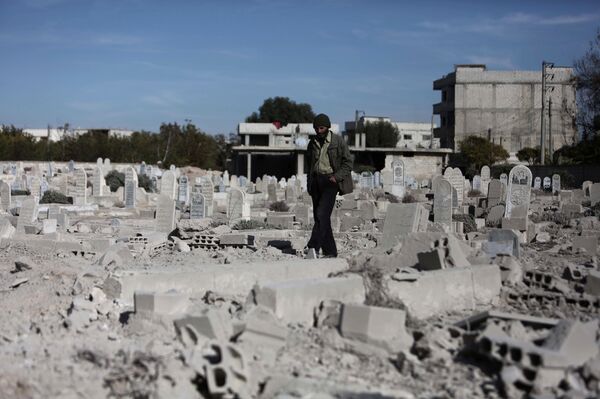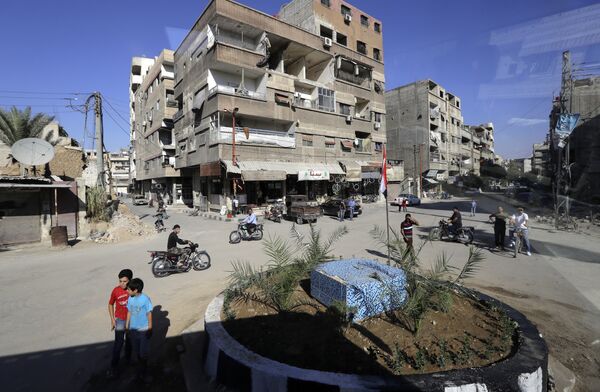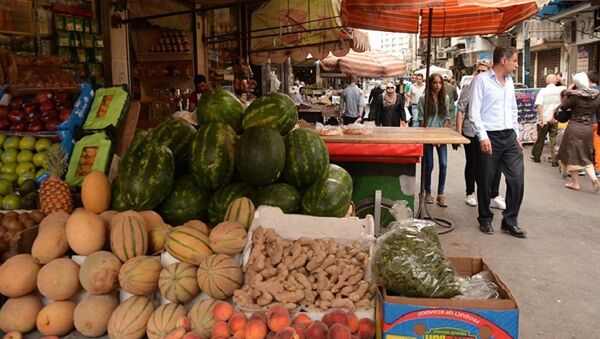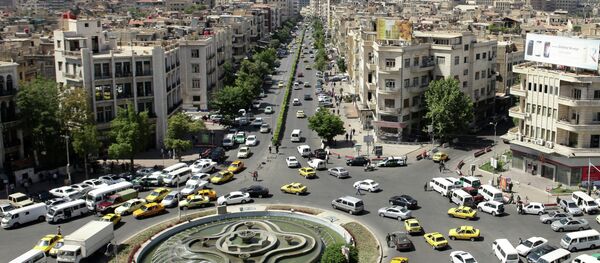Deir el-Asafir was recovered from militants in May 2016, after which mine clearance was carried out.
There were 10 people in the brigade of sapper Omar Asas who were installing new utility poles with a crane.
"We should provide water and install power lines in Deir al-Asafir to ensure that there is light, warmth and comfort in each house, that there are water and sewerage so that people who return to their homes feel comfortable. There is a great deal of work; we will work at least two or three months in Deir al-Asafir," Asas told reporters.
READ MORE: 'With War or With Peace': Damascus Vows to Regain Control of Whole Syria
According to Asas, more than 1,000 families have already returned to the city.
"When we finish laying down water lines and setting up the electricity supply. We still expect the return of 11,000 families," he added.

Along with the restoration of infrastructure, people were returning to the city, opening shops and repairing houses. A windows salesman, Muhammad Attuk, told Sputnik about how his business was gradually developing.
"We have been working here for a short time, but now four or five people are coming in daily. When the electricity comes up and people start to increasingly return, our windows will be in a great demand. You see, the militants left nothing. Not a single window frame, everything was burned down," he said.
Business owner Mahmud was baking pies with meat and cheese.
"We opened about a month ago. There were very few buyers at first, but today about 100 people come to us daily," he said.

Hadi Hamid, a local resident, was repairing his destroyed house.
"Now, we are fixing the kitchen. We brought a stove but have not installed it yet — we have to renovate first. There was a fire, all the interior walls were destroyed, and then they were built again. Now we do not have electricity or water. I plan to finish the repairs in a month and move in here with my family," he said.
Currently, work to restore and repair 133 schools, 109 pre-schools, 105 bakeries, 125 water pump stations, 114 power substations, 100 medical institutions, 1,419 houses and 79 religious buildings is underway in 207 communities in provinces of Aleppo, Damascus, Deir ez-Zor, Latakia, Hama, and Homs.



